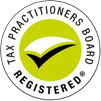If you operate a business as a sole trader or a partnership, you are required to lodge an individual tax return and pay your tax dues annually. So the question arises: What items must appear in my tax return?
Completing your tax return generally requires the declaration of income and expenses you will deduct in order to arrive at your taxable income.
Income
As a general rule, you must declare certain types of income in your tax return. These are amounts you received as:
- Employment income;
- pensions, annuities and government payments;
- interest, dividends and rent;
- income from capital gains;
- income from a partnership or trust;
- all foreign source income;
- any compensation or insurance payments received from lost income;
- under certain circumstances, the value of a prize or reward.
There are exceptions as well or certain types of income that you don’t need to pay taxes on but which you may still have to remember when you think about “my tax return” – if they are used in other calculations for your tax return. Examples are:
- Child support and spouse maintenance payments;
- Australian government disability support pension;
- carer allowance, baby bonus and child care benefit;
- some pay and allowance for Australian Defence Force personnel;
- some Australian Government education payments, such as allowances for students under 16 years old.
Deductions
The following expenses can be deducted from your total annual income to reduce your taxable income which is the basis of your income tax.
- Work related expenses;
- self educated expenses;
- car expenses;
- specific occupations;
- gifts and donations;
- clothing expenses.
On the other hand, you are not allowed to claim the following expenses even if these are associated with your work:
- Travel between your home and your workplace;
- entertainment;
- self education expenses where the course you are taking is not sufficiently connected with your work.
Showing Proof
The tax office may require you to show written evidence of how you arrived at the figures you report in the tax return. This is why you should keep careful records of papers, documents, receipts and other written records showing any payments you have received and expenses you incurred and paid, for at least five to seven years.
These records may be kept in written or electronic form for as long as these are true and clear reproductions of the originals.
Don’t let “doing my tax return properly” be a worry to you. By seeking professional advice this burden can be easily and quickly removed.




